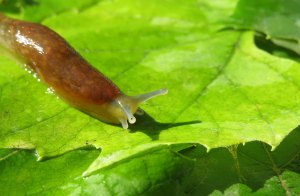First indications that aging may be regulated by brain
Studies on worms indicate genetic link between aging and brain functions
A little worm called Caenorhabditis elegans was the first creature to have all its genes sequenced, more than 19,000 of them. When the human genome was sequenced, researchers found that C. elegans shares about 40 percent of its genes with human beings. Two such genes — with potentially important consequences for humans — were recently discovered in the laboratory of Gary Ruvkun. One of the genes regulates the development from an egg to an adult in a whole Noah’s ark of animals — jellyfish, fruit flies, zebra fish, mice, and, possibly, humans. The other regulates the life span of many animals. When the aging gene is not working right, the worms live three times longer than normal, according to Ruvkun, professor of genetics at Harvard Medical School and Massachusetts General Hospital in Boston. The development gene keeps an animal forever youthful in the sense that it never develops into a reproducing adult.




